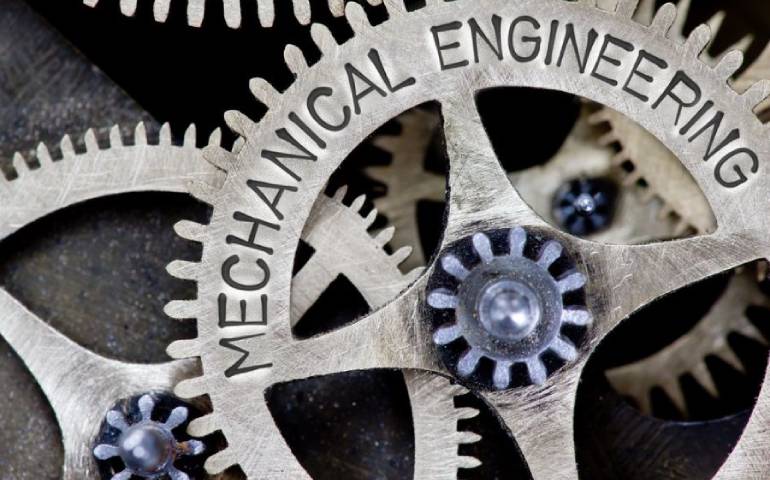The Mechanical Engineering course provides students with a comprehensive understanding of mechanical design, problem-solving, and communication skills in engineering. It covers unit systems, engineering materials, fluids engineering, heat energy, hydraulic machines, strain hardening, and welding.
Overview
The Mechanical Engineering course provides students with a comprehensive understanding of the fundamental principles and practical applications of mechanical design, technical problem-solving, and communication skills in the field of engineering. This course equips students with the knowledge and skills necessary to excel in various aspects of mechanical engineering, ranging from unit systems and engineering materials to fluids engineering, heat as energy, hydraulic machines, strain hardening, and welding. In this course, students will explore the essence of engineering and its role in solving real-world challenges. They will delve into the principles of mechanical design, learning how to conceptualize and create innovative solutions for mechanical systems. Technical problem-solving techniques will be emphasized, enabling students to analyze complex engineering problems and devise effective strategies for their resolution. Unit systems form a vital foundation for any engineering discipline, and this course will provide a comprehensive understanding of various unit systems used in mechanical engineering. Students will develop proficiency in converting between different units, ensuring accuracy and precision in their calculations. Communication skills are essential for successful engineering professionals. Throughout the course, students will enhance their communication abilities, both oral and written, focusing on the specific requirements of engineering contexts. They will learn how to effectively convey technical information, collaborate with multidisciplinary teams, and present their ideas and findings professionally. An in-depth exploration of engineering materials will enable students to understand the properties, characteristics, and selection criteria for different materials used in mechanical engineering applications. This knowledge will lay the groundwork for designing robust and efficient mechanical systems. Fluids engineering is a crucial aspect of mechanical engineering, and this course covers the principles of fluid mechanics, including fluid properties, flow behavior, and fluid dynamics. Students will learn how to analyze and design fluid systems, such as pumps and turbines, ensuring efficient and reliable operation. Heat as energy is another core area covered in this course, wherein students will gain a comprehensive understanding of the principles of thermodynamics and heat transfer. They will explore various heat transfer mechanisms, such as conduction, convection, and radiation, and apply these principles to solve engineering problems related to energy transfer and heat management. Hydraulic machines play a significant role in mechanical engineering, and this course delves into the principles, design, and operation of hydraulic machinery. Students will learn about the various types of hydraulic machines, their applications, and the underlying principles of fluid power transmission. Strain hardening, an essential concept in materials engineering, will be explored in-depth. Students will understand how materials respond to stress and strain, focusing on the phenomenon of strain hardening and its implications in designing strong and durable mechanical components. Lastly, the course will cover the principles and techniques of welding, an essential skill in mechanical engineering. Students will learn about different welding processes, safety procedures, and quality control measures, equipping them with the skills necessary to join and fabricate metal components effectively. Throughout the course, students will engage in theoretical lectures, practical laboratory sessions, and hands-on projects to reinforce their understanding of the concepts and develop practical skills in mechanical engineering. By the end of the course, students will be well-prepared to contribute effectively to the field of mechanical engineering, equipped with the knowledge and skills necessary for successful careers in this dynamic discipline.What Will You Learn?
- Gain a thorough understanding of the essence of engineering and its role in solving real-world challenges.
- Develop proficiency in mechanical design, including conceptualization and creation of innovative solutions for mechanical systems.
- Acquire technical problem-solving skills to analyze and resolve complex engineering problems effectively.
- Familiarize yourself with various unit systems used in mechanical engineering and develop the ability to convert between different units accurately.
- Enhance your communication skills, both oral and written, specifically tailored for engineering contexts.
- Gain comprehensive knowledge of engineering materials, including their properties, characteristics, and selection criteria.
- Explore the principles of fluid mechanics and learn how to analyze and design fluid systems such as pumps and turbines.
- Understand the principles of thermodynamics and heat transfer, and apply them to solve engineering problems related to energy transfer and heat management.
- Gain insights into hydraulic machines, their design, operation, and applications in mechanical engineering.
- Develop a deep understanding of strain hardening and its implications in designing strong and durable mechanical components.
- Learn various welding processes, safety procedures, and quality control measures for effective joining and fabrication of metal components.
Who Should Take The Course
- Prospective engineering students interested in pursuing a degree in mechanical engineering or related fields.
- Current mechanical engineering students looking to deepen their knowledge and enhance their skills.
- Engineering professionals seeking professional development and staying updated with the latest advancements in mechanical engineering.
- Individuals considering a career transition into the field of mechanical engineering.
- DIY enthusiasts with a personal interest in mechanical systems, design, and problem-solving.
Requirements
No specific prerequisites required, but a basic understanding of mathematics, physics, and engineering principles is helpful.Course Curriculum
-
- What is Engineering 00:23:00
-
- Mechanical Design 00:25:00
- Technical problem-solving 00:24:00
- Communication skills in engineering 00:24:00
- Fluids Engineering 00:24:00
- Hydraulic Machines 00:23:00
- Welding 00:27:00
Course Reviews
3.7
- 5 stars2
- 4 stars2
- 3 stars1
- 2 stars0
- 1 stars1
New Courses
Blogs
Jul'23
ADHD Training for Teachers: Empowering Educators to Support Students with Attention Challenges
Relationships may be severely harmed by narcissistic behaviours, leaving emotional scars and...
Jul'23
Narcissistic Behaviour and Relationships: Understanding the Impact and Finding Healing
Relationships may be severely harmed by narcissistic behaviours, leaving emotional...
Jul'23
Childhood Trauma in Adults
What Is Childhood Trauma? Childhood trauma refers to distressing or...
Jul'23
Creating A Social Media Strategy
Set Clear Objectives:The first step in developing a successful social media...
Jul'23
Neuro-Linguistic Programming Techniques
Neuro-Linguistic Programming (NLP) is a fascinating and widely acclaimed approach...
Jul'23
Acceptance and Commitment Therapy in the UK
What is acceptance and commitment therapy? Acceptance and Commitment Therapy...






Verry fast and full of all details
good course
fantastic understanding of the course and will further my education with this website to further my career
imformative
Don’t really works in iPads plus if you want certificate need pay